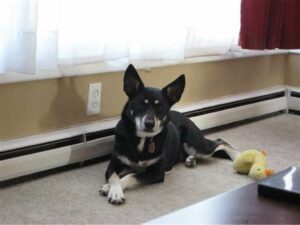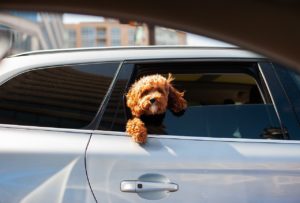Longlivedog.com – Everyone loves a pup. And who can blame them? Dogs are one of the most lovable creatures on Earth. They’re always happy and ready for a good game of fetch. But many people don’t know that dogs require a lot of exercises. Owning a dog can cost you in terms of both time and money. That’s because dogs need a large amount of training, which often means going on walks.
But what if you don’t live in a walking neighborhood? Or what if you only have a limited amount of time each day to walk your dog? In that case, consider using an animal-friendly alternative to walking your pup.
Such options include using a playpen or having your dog sleep inside with you at night. Either way, it’s essential to be aware of the misconceptions about owning a dog and figure out an appropriate solution for your individual situation.
What is a misconception about owning a dog?
There are a few misconceptions about owning a dog that many people have, despite the fact that owning a dog is one of the most rewarding things a person can do. The first misconception is that dogs require extensive amounts of exercise. A well-trained dog only needs about an hour of regular daily walking.
The second misconception is that dogs require expensive food and medical care. In reality, dogs typically eat cheaper than humans and only require essential vaccinations and vet care.
The benefits of owning a dog
There are many benefits to owning a dog, whether you have one or not. Dogs provide companionship and love, help keep you mentally and physically healthy, and can be great protectors. Here are eight of the most significant benefits of dog ownership:
1. Dogs Provide Companionship and Love:
Dog owners often report that having a dog is one of the best things they ever did for their mental health. A study published in the journal “Psychology & Health” found that people who had a dog during childhood were significantly less likely to develop depression than those who didn’t. Dog ownership has been linked with reductions in stress levels and an overall improved sense of well-being.
2. Dogs Help Keep You Physically Healthy:
A study published in “The Journal of Nutrition” found that people who own dogs are more likely to maintain a healthy weight than those who don’t own dogs. The study also found that people who owned dogs between the ages of 18 and 64 were 30% less likely to be obese than those who didn’t own dogs during the same period.
3. Dogs Can Be Great Protectors:
Dogs can act as terrific protectors against crime by providing security in your home and neighborhood and helping deter burglars. A study published in “Lethal Violence” found that pet owners were 27% less likely to experience crime victimization than non-pet owners. And another study
The cost of owning a dog
The average cost of owning a dog varies depending on the breed and size but typically ranges from around $400 to $1200 per year. Grooming and feeding a dog can also add up, with estimates running from about $50 to $100 per month. And, of course, there are always healthcare costs associated with owning a pet, which can amount to thousands of dollars annually. All said, owning a dog can be an expensive proposition!
How to get a dog
There are many misconceptions about owning a dog, and one of the most common is that dogs require a lot of time and energy to care for. In reality, dogs are relatively easy to care for, given the right amount of exercise and attention.
To get a dog, you must first decide what type of dog you want. Many different types of dogs are available, from sports to working dogs. Once you’ve decided on a kind, you need to find a reputable breeder with healthy puppies. You should also ensure that the puppy’s parents have been checked for genetic defects by your vet before bringing them home.
When caring for your new dog, there are a few things you’ll need to do daily. Firstly, give him enough exercise – a regular walk is ideal. Secondly, make sure he has plenty of toys and chew toys so that he can keep his brain stimulated; this will help prevent destructive behavior. Finally, feed him good quality food and water – providing these basics will help ensure your dog’s health and well-being.
How to care for your dog
There is a misconception that owning a dog is a lot of work. In reality, dogs are typically straightforward to care for. Here are some tips on how to take care of your dog:
1) Feed your dog regularly. Dogs need food just like people do. Make sure you give them fresh, nutritious food every day.
2) Keep your dog well-groomed. Regular grooming will help keep them clean and healthy. Clippers, baths, and ear cleaning can also be done as needed.
3) Train your dog properly. This will help them learn basic obedience commands such as “sit,” “down,” and “come.” Training also helps keep the dog from becoming destructive or dangerous.
4) Get your dog exercised. A daily walk will do wonders for their mental and physical health. If you can’t take your dog for a walk, try playing fetch or providing them with other physical activities to enjoy.
Conclusion
There is a lot of misinformation about owning a dog, and we must dispel some of the myths so that everyone can have the best possible experience when they bring their furry friend into their lives. Here are four of the most common misconceptions about dogs and how to avoid them:
1) Dogs need to be constantly walked. This is not only untrue but can also lead to over-exercise and injury in your dog. A moderate amount of exercise is all your pup needs — enough to keep them healthy but not so much that they become overexcited or destructive.
2) Dogs always want to play fetch. While playing fetch may be one of the favorite activities for many people, not all dogs enjoy this activity. If your pup responds poorly to throwing toys or seems hesitant or scared when you try to play fetch, this might not be the right game for them.
3) A dog needs an extensive amount of food each day in order to stay healthy and strong. In reality, a small amount of high-quality food such as quality kibble will do wonders for both your canine companion’s health and your wallet. Feeding your dog multiple meals per day instead.








